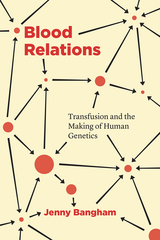
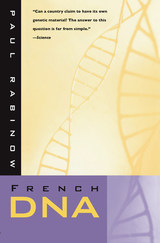

Contemporary developments in human genetics are profoundly meaningful, both for the rapidity of scientific discoveries and for their personal and social implications. The Human Genome Project, a worldwide effort to map the 50,000 to 100,000 genes making up the human blueprint, is creating new ways of understanding ourselves as individuals, as parents, as members of a family, an ethnic group, a species. Almost every day yet another medical detective finds a genetic clue to the long-running mystery of human identity.
In 1992, the University of Iowa Humanities Symposium provided a public forum to examine the issues—moral, conceptual, legal, and practical—in modern genetics that are crucial to all of us. This strong, challenging volume is a collection of the major essays presented by historians, philosophers, and other academic humanists to a multidisciplinary audience of molecular and clinical geneticists, genetic counselors, humanists, and members of the public. The essays explore the historical background, philosophical implications, and ethical issues related to the Human Genome Project as well as other developments in modern genetics.
The questions raised in these essays are dramatic and troubling. What kind of knowledge is being produced by molecular geneticists? Do individual human genomes differ significantly from each other? How much do females and males differ from each other at the molecular level? Is there any genetic basis for distinguishing among racial or ethical groups? Can current practices in genetics counseling be compared to the earlier eugenics movement? Will current research lead to updated views on genetic “normalcy” or even “superiority”?


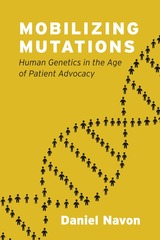
Drawing on a wealth of fieldwork and historical material, Navon presents a sociological account of the ways genetic mutations have been mobilized and transformed in the sixty years since it became possible to see abnormal human genomes, providing a new vista onto the myriad ways contemporary genetic testing can transform people’s lives.
Taking us inside these shifting worlds of research and advocacy over the last half century, Navon reveals the ways in which knowledge about genetic mutations can redefine what it means to be ill, different, and ultimately, human.

The Faustian bargain—in which an individual or group collaborates with an evil entity in order to obtain knowledge, power, or material gain—is perhaps best exemplified by the alliance between world-renowned human geneticists and the Nazi state. Under the swastika, German scientists descended into the moral abyss, perpetrating heinous medical crimes at Auschwitz and at euthanasia hospitals. But why did biomedical researchers accept such a bargain?
The Nazi Symbiosis offers a nuanced account of the myriad ways human heredity and Nazi politics reinforced each other before and during the Third Reich. Exploring the ethical and professional consequences for the scientists involved as well as the political ramifications for Nazi racial policies, Sheila Faith Weiss places genetics and eugenics in their larger international context. In questioning whether the motives that propelled German geneticists were different from the compromises that researchers from other countries and eras face, Weiss extends her argument into our modern moment, as we confront the promises and perils of genomic medicine today.
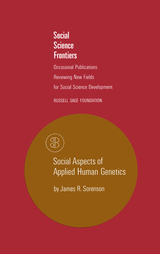
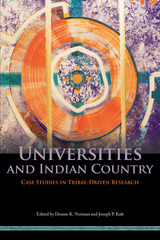
Building on the Harvard Project on American Indian Economic Development’s experience with more than 120 nation-building projects over two decades, Universities and Indian Country posits that the tenets of nation building can provide a strategy for expanding and diversifying universities’ perspectives of knowledge in a multicultural world, while also producing results that are requested by and useful to Native communities.
This groundbreaking volume extends the dialogue begun by the Harvard project, providing another venue for the sharing of knowledge and information. The projects presented address a wide range of topics, including the regulation of genetic research, human resource development, tribal fund-raising, development of tribal museums, and freedom of the press in Indian Country.
Universities and Indian Country’s focus on the concerns and questions of Native communities themselves, provides insight not only into how projects came together, but also into what significance they have to the tribal partners. This compilation is a valuable resource for any student, professional, or community member concerned with issues of nation building and self-determination.
READERS
Browse our collection.
PUBLISHERS
See BiblioVault's publisher services.
STUDENT SERVICES
Files for college accessibility offices.
UChicago Accessibility Resources
home | accessibility | search | about | contact us
BiblioVault ® 2001 - 2024
The University of Chicago Press









